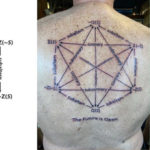We run our website the way we wished the whole internet worked: we provide high quality original content with no ads. We are funded solely by your direct support. Please consider supporting this project.
How do you respond to Malachi 3:6?
“For I the Lord do not change; therefore you, O children of Jacob, have not perished.”
Some cite this verse as evidence that God need never be flexible in his plans and change his mind. But this claim contradicts all the explicit declarations in Scripture which state that God does frequently modify his plans and change his mind, especially in response to prayer and repentant hearts.
It’s important to consider this verse’s context. The Lord is teaching Israel that if it were not for his steadfast character and covenantal integrity they would have all perished because of their iniquities. God’s character never changes. He is always perfectly good and faithful. But for just this reason he will not stick to one intention—even after he’s announced it—if the circumstances change and render that intention no longer perfectly good (see Jer. 18:6–10; Jon. 4:2; Joel 2:12–13). In other words, God is absolutely unchanging in his perfect character which is perfectly responsive to our ever changing circumstances.
Category: Q&A
Tags: Open Theism, Q&A
Topics: Open Theism, Responding to Objections
Verse: Malachi 3
Related Reading

Free Will: What about “natural” evil? Was Hurricane Sandy a Free Agent?
What about natural evil? How does free will help to make sense of this? Greg reflects on the origins of sickness, natural disaster, animal suffering and so on. Hope you’re enjoying the series so far. There’s more to come!

What is the significance of 1 Chronicles 21:7–13?
The Lord gives David three options of how Israel may be judged. “Three things I offer you; choose one of them, and I will do it to you.” Paralleling 2 Samuel 24:12–16, this passage reveals that the Lord gives people genuine alternatives and then responds to their choices. If the future is unalterably settled in…

Boyd’s Bad Ass Tattoo
by: Greg Boyd In the process of working through a philosophical issue surrounding the openness of the future around twenty years ago, I and two friends (Alan Rhoda and Tom Belt) ended up creating the “Hexagon of Opposition”, or “Hexagonic Logic of Futurity,” as I’ve sometimes called it. I’ll explain what it all means in…

Greg’s Interview on The Christian Transhumanist Podcast
Here is an interview I did for The Christian Transhumanist Podcast that I wanted to share with all of you. Micah Redding and I discuss everything from Relativity Theory to Politics. I think you’ll find it interesting, but I want to offer a word of clarification before you listen. At one point in this interview…

How do you respond to Proverbs 16:4?
“The Lord has made everything for its purpose, even the wicked for the day of trouble.” Calvinists often cite this verse to support the conclusion that some people are created wicked for the expressed purpose of being sent to hell. Since Scripture teaches that God is love (1 John 4:8, 16), that God loves all…

In light of Einstein’s conclusion that time is relative, how can you believe that God is not above time?
Relatively Theory basically stipulates that whether an event is viewed as being in the past, present or future depends on where one is in relation to the event in question as well as how fast one is moving. Some people conclude from this that Relativity Theory lends support to the classical view of God in…
